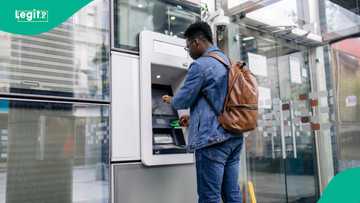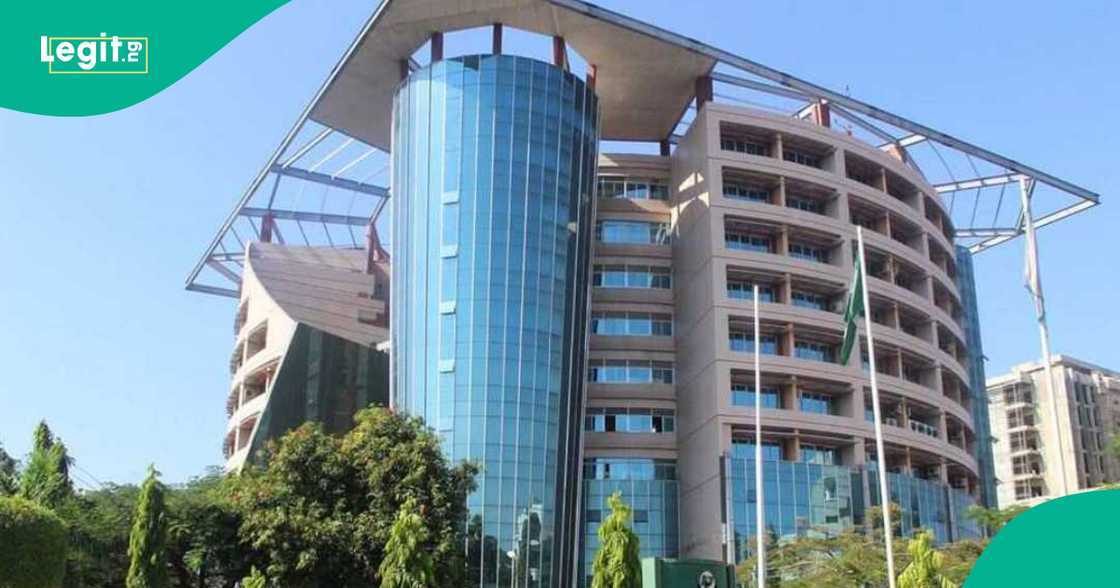USSD Charges: MTN, Airtel, Glo recover N170 billion as new billing model begins
- The USSD method of accessing banking services has been popular among Nigerians for over a decade, especially in rural areas
- However, the service comes at a fee, which the banks deducted from the customers' accounts but failed to remit to the telecom operators
- After intervention from the regulators, the telecom operators have confirmed that the banks have repaid the bulk of it, with only three banks still in debt
Legit.ng journalist Ruth Okwumbu-Imafidon has over a decade of experience in business reporting across digital and mainstream media.
The long-standing debt between commercial banks and telecommunications companies in Nigeria has almost been cleared.
Telecom companies in Nigeria have confirmed that about 95% of the debt has been recovered as outstanding payment for Unstructured Supplementary Service Data (USSD) fees over the years.
Chairman of the Association of Licensed Telecommunications Operators of Nigeria (ALTON), Gbenga Adebayo, gave this update on Thursday during a virtual media briefing.

Read also
Customers of Zenith, UBA, others protest excessive charges as banks change USSD billing method

Source: Getty Images
According to Adebayo, only three banks have yet to clear off their debts. However, these three banks have committed to a structured repayment plan.
This brings to an end the five-year dispute between telecom operators and the banks, a dispute that threatened to cut off USSD services altogether.
The worst affected would have been the millions of Nigerians in rural areas where internet access is limited, and USSD remains the only viable alternative for quickly accessing banking services.
Users to now be charged directly for USSD service
This update comes days after several banks implemented the end-user billing model, allowing telecom operators to directly deduct the ₦6.98 USSD fees for a 120-second session from the customers' airtime balance.
It means that telecom operators no longer have to wait for the banks to deduct the fees from the user’s account balance and remit to them, but can now directly charge for the service.
This model also introduces greater transparency to the system as users are prompted and will directly opt in before the charge is deducted for the service.
The National Association of Telecoms Subscribers has welcomed this new model as a long-overdue reform.
The association President, Adeolu Ogunbanjo, told the PUNCH:
“It brings transparency to how users are charged and ensures that operators are paid for the services they provide. Before now, banks would deduct the money from our accounts and fail to remit it to the telcos. It was always a problem.”
End-user billing is optional for banks
Speaking at the media briefing, Mr. Adebayo explained that the adoption of end-user billing is optional, and banks that have fully cleared their outstanding debts can choose to retain the old method of corporate billing.
They, however, must commit to promptly remitting the funds after deducting from customers.
He stated:
“Those who may not want to migrate to the new method can continue with corporate billing, provided they have paid all their debt and will not owe telecom operators, since they are deducting money from their customers.”

Read also
“₦550 per litre”, Marketers move to import cheaper fuel as Dangote, NNPCL increase pump price
Banks, Telcos bicker over outstanding USSD fees
The issue of unpaid USSD fees has lingered since 2019, when telecom operators complained that the banks withheld payment despite deducting straight from customers’ accounts.

Source: Twitter
By the end of 2024, the amount had grown to over ₦200 billion, prompting the telecom operators to threaten to disconnect USSD services.
Interventions from regulators stalled this threat from being carried out, and the banks were given a deadline to commence payments.
GTB, others commence end-user billing
In related news, Guaranty Trust Bank (GTBank) has announced that customers will be billed for USSD service from their airtime.
Legit.ng reports that this is in line with the directives from the Nigerian Communications Commission (NCC) and the Central Bank of Nigeria (CBN).
There are strong expectations that this new billing model will help resolve the long-standing debt dispute between banks and telecom operators.
Source: Legit.ng


